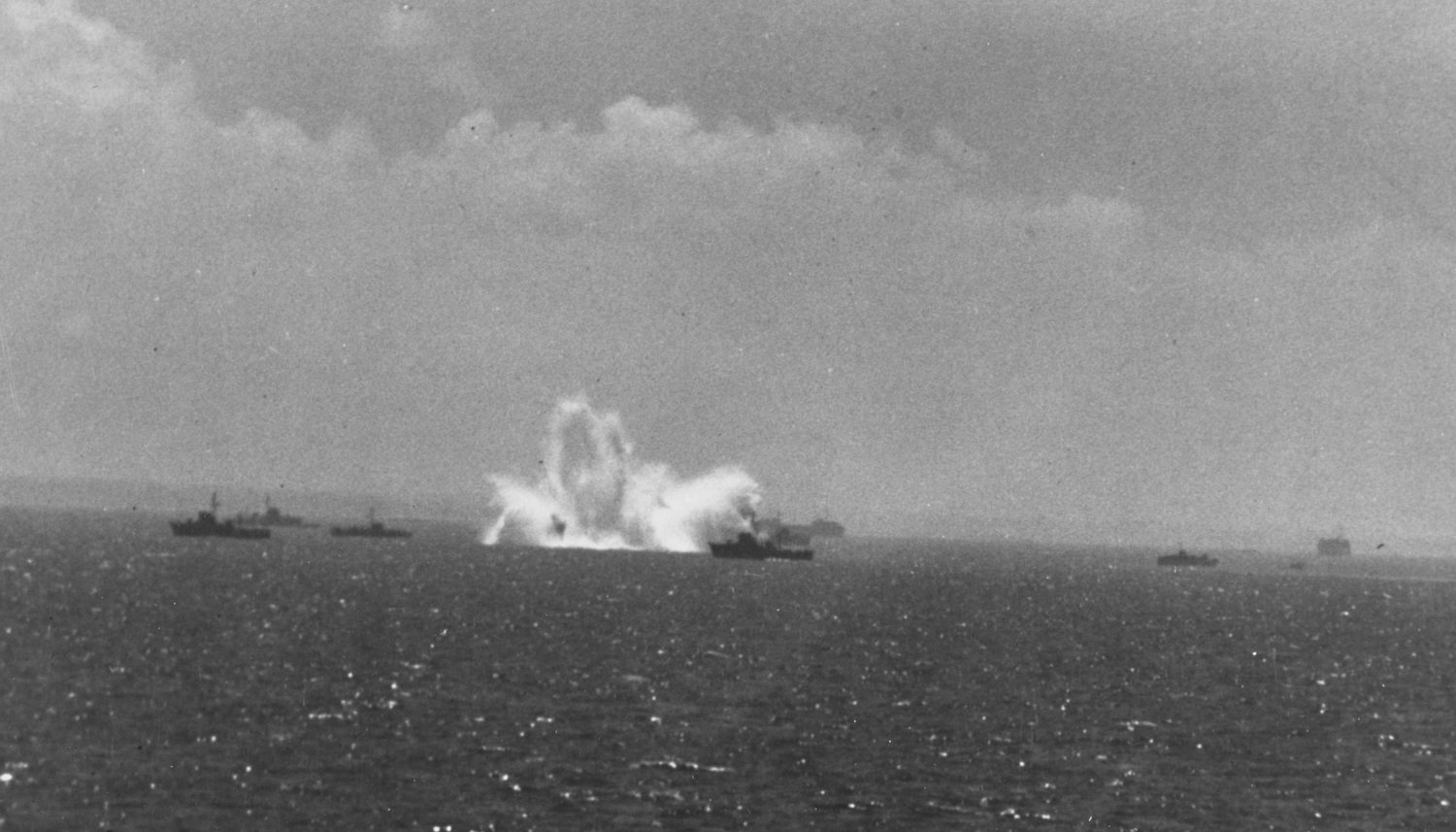Minesweepers on Utah beach

Aubrey Gilman tells about the minesweepers on Utah Beach:
On June 4, the captain called us in to assemble us and discuss some things, including warning us about possible gas attacks. He told us what effect gas can have on a person, such as blisters and reddened skin. Finally, he asked if we had any questions. Calvin Evans, a coloured man, asked, “Captain, what colour do I turn into?” Everyone laughed their heads off.
We were ready to leave for the invasion but due to bad weather, it was postponed for 24 hours. We sailed around for a while until we were allowed to cross the English Channel. On the way to the French mainland, we could see the bombing and shelling as our paratroopers were dropped.
It was now on the night of June 5, the eve of D-Day, that we, as minesweepers on Utah Beach, were sent forward, close to the beaches. Here we had to deploy our equipment around 1.25 am. It was very dark but you could still see the beach. You were not really scared but rather excited and waiting for something to happen. We were determined to do a good job.
We made our first sweep on the starboard side and kept moving towards the beach. When we had almost finished sweeping, it started getting light again. This revealed our position to the German batteries who immediately started firing at us. The bombs flew all around us and often close to us. Our ship was in line with the British cruiser, the Black Prince, and the German batteries. So the bombs that missed the cruiser often came close to us. A mate of ours, Leo Poole, was at the back of the ship hauling equipment when a bomb hit the water close to us. He remarked, “What on earth would make such a fool stand behind that cannon?” It was just at the right time when he made that comment and everyone started laughing.
We saw a Spitfire, which was laying down a smoke screen to protect us, get shot down but apparently that did not scare the other pilots as they continued to lay down the smoke screen.
At the moment we had to make way to let others through and were almost at our anchorage, a mine was spotted and we had to defuse it. It was the first time we had been allowed to open fire and we were all pleased about that. We sunk the mine and proceeded to our anchorage. We then had something to eat and later returned to sweep the mines at 1pm.
When we were on our way to our next sweeping point, everything was in full swing. We swept mines during the whole evening. Most of the mines were magnetic and acoustic, so we often had to adapt our sweeping style. At 8 p.m. we were allowed to stop sweeping, but when night came, it became exciting again. When we anchored for the night, some enemy planes came in our direction to disrupt the invasion. The clouds were low and the planes were obliged to fly low to find their targets. They had made several attempts to attack the U.S.S. Arkansas, one of our oldest battleships, but without success. When one of the planes attacked unusually low, all surrounding ships started firing at it but without success. There was also one such aircraft which kept returning the following nights and the crews soon had a nickname: “Washing Machine Charlie,” because of the sound of its engine.
Have you noticed a language or writing error? Please let us know, as this will only improve our reporting. We will correct them as soon as possible. Your personal data will be treated confidentially.
Report error